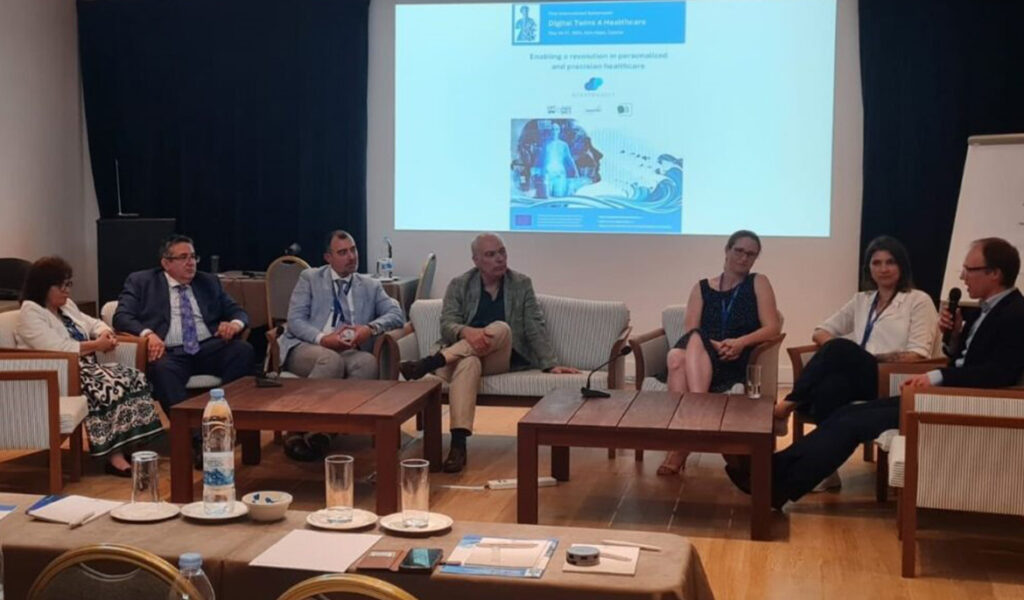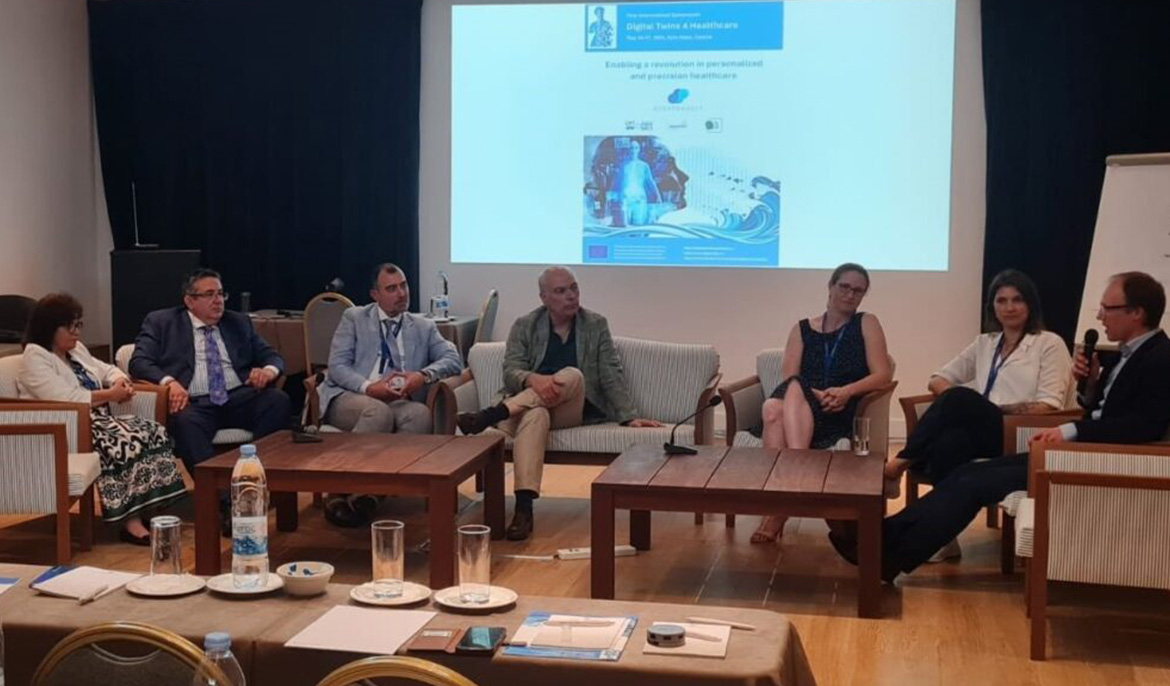Chief Scientist Demetris Skourides was a prominent participant in the First International Symposium: Digital Twins 4 Healthcare, according to an official statement by the foundation.
Held on May 16 and 17, this cutting-edge event was organised by the University of Cyprus alongside CYENS, KOIOS, and EPOS-IASIS, drawing an impressive cadre of over 45 international researchers.
This conference included notable contributions from Cypriot academics such as Constantinos Dovrolis, Costas Pitris, and Antonis Kakas, who engaged in spirited discussions on how pioneering research, science, and technology are driving revolutions in personalised and precision healthcare.
The symposium was adeptly chaired by Andreani D. Odysseos of EPOS-IASIS and Adrian Ionescu of EPFL Switzerland.
The event was distinguished by the presence of Kyriakos Hatziaras, a programme and policy officer, who exchanged insights across various critical areas.
These discussions spanned the development of emerging technologies for digital twins, the intricate crafting and curating of data model repositories, and the strategic development, testing, and implementation of robust IT platform architectures that integrate computational advances with cybersecurity, cloud services, and edge computing.

Moreover, the symposium was routed through clinical translations and industrial uptake discussions, addressing crucial elements such as standardisation and interoperability.
The discourse also ventured into the realms of ethical considerations and societal acceptance, as well as transformative visions for policy creation and the proactive implementation of healthcare strategies.
In a particularly insightful panel discussion, Skourides emphasised the vital role of science in informing policy decisions and further elaborated on the paramount importance of quality data to bolster decision-making systems that provide critical insights for governmental action.
He highlighted ongoing research into how artificial intelligence can propel advancements in predictive, diagnostic, and personalised treatments through the innovative use of digital twins in healthcare.
The agenda also included a series of captivating sessions that shone a light on various aspects of digital twins in healthcare.
Highlights included presentations on micro-scale tumour digital twins by Igor Balaz, ethical considerations in digital twins highlighted through the OPTOMICS case by Anne Demoisy, and transformative discussions on personal genomics from DNA to digital twins by Gokhan Ertayla.
Additional sessions explored the potential of AI-enhanced digital twins in predicting stroke and cerebrovascular events through computational modelling of carotid artery disease and the application of digital twins in non-invasive brain stimulation for Alzheimer’s Disease by Adria Galan Gadea.
Further enriching the dialogue, Liesbet Geris discussed the combination of in silico and in vitro tools in skeletal tissue engineering, while Martin Golebiewski elucidated the role of standards in crafting an ecosystem for Virtual Human Twins.
The convention concluded with a forward-looking talk by Adrian Ionescu on the future of digital twins in healthcare and an exploration of explainable digital twins by Antonis Kakas, diving deep into the future potential of digital twins and triplets. (Cyprus Mail)



